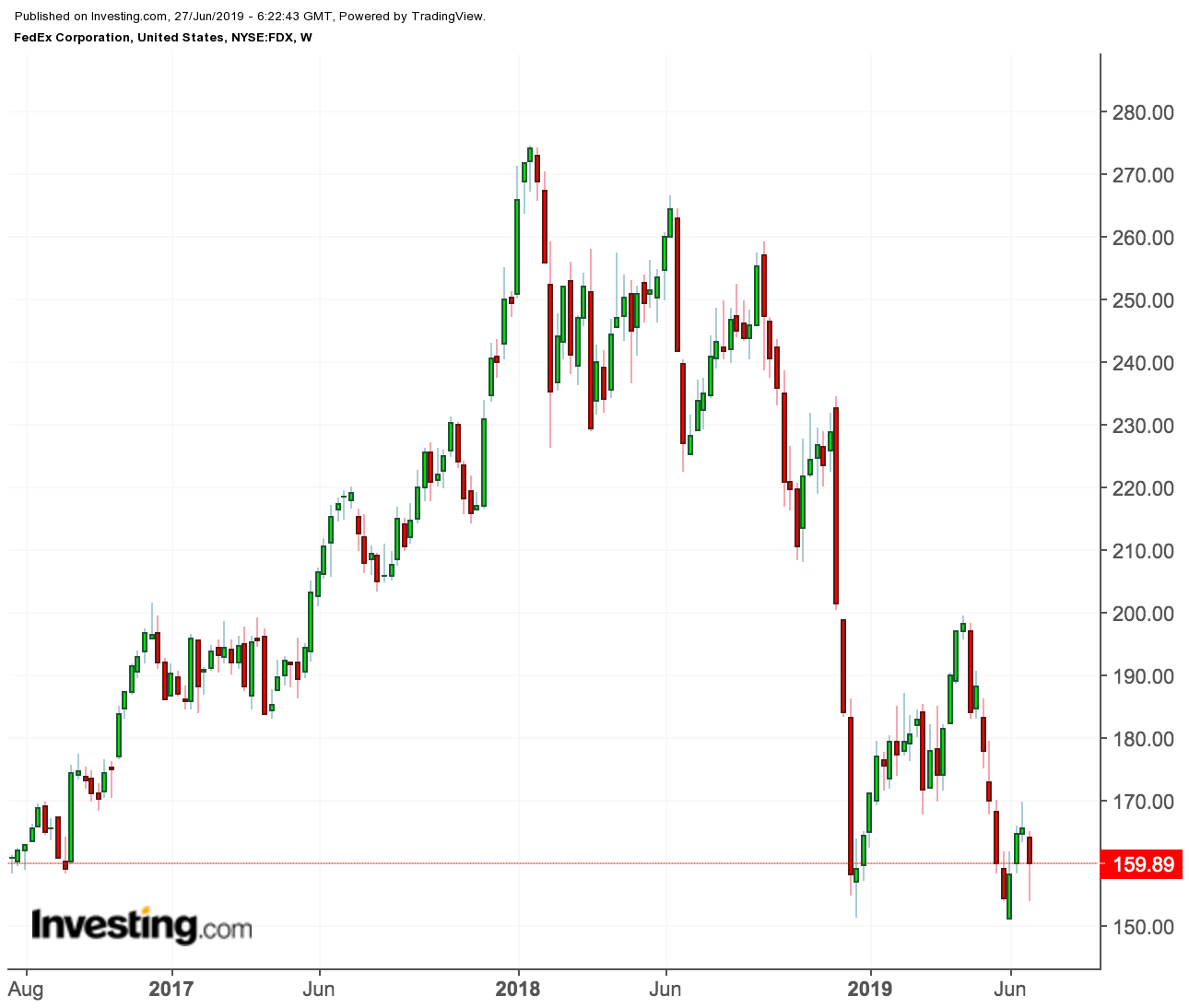The world’s largest parcel-delivery service, FedEx (NYSE:FDX), is now the unwelcome bearer of tidings of gloom and doom — especially for companies whose fate is closely tied with global economic growth.
During its fiscal fourth quarter earnings statement yesterday, FedEx said it’s expecting its first annual decline in adjusted earnings per share in more than five years. Adjusted earnings for the current fiscal year will drop by “a mid-single-digit percentage” from $15.52 a share in the year just ended. Analysts were expecting $16.15 in fiscal 2020. FedEx had already cut its earnings outlook in each of the two previous quarters.
Said Chief Financial Officer Alan Graf:
“Our fiscal 2020 performance is being negatively affected by continued weakness in global trade and industrial production, especially at FedEx Express.”
But even that guidance incorporates many assumptions that may not come to the company’s rescue. For example, FedEx is seeing moderate economic growth in the U.S., no further weakening in global economic conditions, and no additional setbacks on the international trade front, implying the U.S. and China will settle their dispute.
FedEx’s earnings, which come almost a month earlier than the fourth-quarter numbers of the majority of U.S. companies, generally attract close attention because the delivery business is a proxy for the global economy and can give early warnings on trade and business investment issues.

Investors are taking gloomy predictions like these seriously. FedEx shares, since peaking in early 2018, have lost more than one-third of their value. Despite rising 2.6% yesterday, to close at $159.96, the shares have tumbled about 9% over the past three months, whereas the benchmark S&P 500 is up more than 3% in the same period.
FedEx Struggling on Many Fronts
Indeed, the company is struggling on many fronts. It has been restructuring its operations to cope with the rise of e-commerce orders. It recently ended is contract with Amazon (NASDAQ:AMZN) and announced plans to offer seven-day home delivery and to handle more of the packages it used to route through the U.S. Postal Service.
The company’s 2016 acquisition of TNT is still very much a work-in-progress as it has failed to unlock the value investors were hoping to see. FedEx said in March the integration costs for the acquisition are expected to exceed $1.5 billion through fiscal 2021, with the potential of further escalation. The integration challenges and the slowing European economy have raised doubts about the benefits of the TNT deal, with some analysts questioning the wisdom behind this massive undertaking.
Beyond economic risks, FedEx has been caught up in the trade crossfire after the White House barred U.S. companies from selling technology to Chinese telecommunications giant Huawei. While trying to comply, FedEx employees mistakenly flagged packages involving Huawei. Now China is considering adding the courier to a list of so-called unreliable entities. At stake is the company’s $4.6 billion revenue from China, or 6% of its total sales, if both nations fail to resolve their trade issues.
Bottom Line
FedEx’s outlook on weakening global trade and the economy cements our view that investors should increase the number of defensive stocks in their portfolios. These stocks are better positioned to withstand the economic slowdown, or even a recession.
That means picking stocks from industries such as utilities, telecom operators, like BCE, and top healthcare companies, including Proctor & Gamble or Merck. These defensive areas of the market have a long track record of doing better in times of uncertainty while also offering steadily growing dividends.
